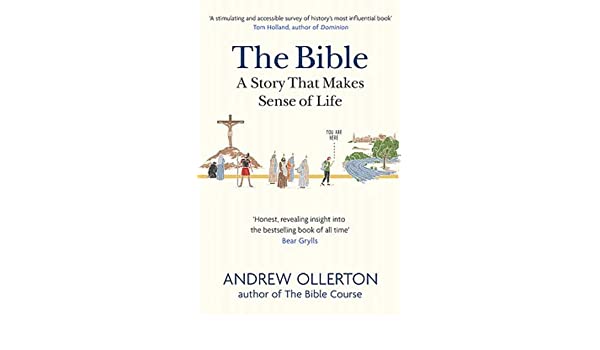The Bible. A Story that makes sense of Life
by Andrew Ollerton (Hodder & Stoughton, £14. 99; available in bookshops this month)
The Bible, from Genesis to the Epistles, provides the common ground for belief for Christians of all tradition, East and West. And yet again, from East to West, they have drawn such varied notions from the same words, that it would be as well if from time to time that everyone who calls themselves Christians takes the time to reacquaint (or indeed acquaint themselves) with what the singular source of their faith really says.
The views of many are so different from those others, and drawn from the same texts, is strange indeed. Often people rightly feel the need of guidance. Here Andrew Ollerton, an ordained Methodist minister, attempts to presents the Bible as “a story that makes sense of life”.
He had his start in a remark by Chesterton in Orthodoxy: “I had always felt life first as a story; and if there is a story there must be a story teller.” Ollerton follows up on this with a connection story line: origins – exodus – exile – messiah – spirit – hope.
He produces not ‘a basic Bible’, but more effectively ‘an essential Bible’. Like the hardy mountaineer that he is, Ollerton moves from peak to peak. The valleys, with their darker corners, can await another day.
I was surprised to find that for his purposes the scheme works very well. It will not suit all places and purposes but for introducing those with little or no knowledge of the all so varied texts contained in the collection, is great. I can see many many people finding his little book, literally ‘ a God send’.
In this mode then as a guide to life, but we also need to keep in mind that the great lesson of life itself is that things change. The Bible will remind people that though life changes, Chesterton’s story teller never changes. When everything is changing for so many people, for Christians the heart of things never changes.
Ollerton explains that his book is aimed at letting the Bible “make sense to us” in order that it will, in turn, “make sense of us”.


 Peter Costello
Peter Costello
